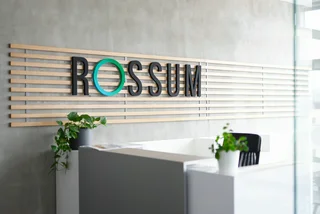The Czech Republic is rapidly becoming a global hotspot for IT developers and high-tech industries. The country’s new government believes developing a cutting-edge, modern economy could be key to the Czech Republic finally reaching the levels of economic prosperity seen in western Europe.
2021 saw more leaps forward for the Czech Republic’s high-tech industries. Leading the way are two companies which have become the Czech Republic’s first ever “unicorns,” meaning privately-owned start-ups valued at over $1 billion.
PARTNER ARTICLE
Productboard, headquartered in San Francisco and Prague, helps companies respond to customer demand with tailored digital products. The firm’s customers include giants such as Microsoft, Volkswagen, Zoom and fellow Czech tech company Avast.
After receiving $125 more in investments from U.S. funds, Productboard’s value now easily exceeds $1 billion.
“The ever-accelerating digitization of the world is working in our favor, so we have big plans,” said Hubert Palán, co-founder and CEO at Productboard.
Productboard’s growth since being founded in 2014 is remarkable. Its number of employees is doubling each year, now comprising over 400 specialists in Prague, Brno, San Francisco, Dublin and Vancouver.
But the Czech Republic’s other “unicorn” start-up is a bigger household name. The Rohlík Group became the first ever Czech unicorn last summer after attracting investment to help it expand in more international markets.
The company plans expansions to Italy, Romania, France and Spain in the near future, having already started operating in Austria, Hungary and Germany.
The company’s Czech operations and overall brand are named after the beloved Czech baked product, but in foreign markets “Rohlík” has had to be replaced by other names. Countries with Latin-based languages will know the company as “Sezamo” (“sesame seeds”), while in Austria the name is Gurkerl (“gherkin”) and in Germany it’s Knuspr (“crispy”).
The successes of Productboard and Rohlík suggest the Czech Republic is the right place to be building a tech start-up. Considering its size, the Czech Republic has an exceptional number of global IT industry leaders. Other big names include cybersecurity company Avast and travel giant Kiwi.com.
Discussing Productboard’s expansion, co-founder Palán emphasized the importance of finding the right IT experts for disruptive and innovative companies. “Hiring the best experts in the world is crucial for our further successful growth,” he said.
As expats.cz reported in September, conditions for IT professionals are extremely favorable in the Czech Republic. The country’s concentration of successful tech businesses means competition for local and foreign experts is fierce. This competition is pushing up standards among the country’s expert community, driven in part by the arrival of more foreign professionals, leading to even better options for employers.
In this context, it’s no surprise that the Czech Republic is also becoming a popular destination for foreign technology investments. A number of major foreign-led projects have been announced in the country in recent months, including the creation of a CZK 1 billion research and development center by global cybersecurity firm SentinelOne.
More local players are meanwhile eyeing up “unicorn” status. Companies which could pass the $1 billion valuation mark in the near future include Mews, which develops hotel management systems, and AI-based accounting leader Rossum.
The Czech Republic’s eastern neighbor Slovakia currently has no “unicorn” start-ups. London has Europe’s largest concentration of unicorns, with 71 privately-owned companies valued over $1 billion, followed by Paris with 21 unicorns and Berlin with 19.












 Reading time: 3 minutes
Reading time: 3 minutes 



























